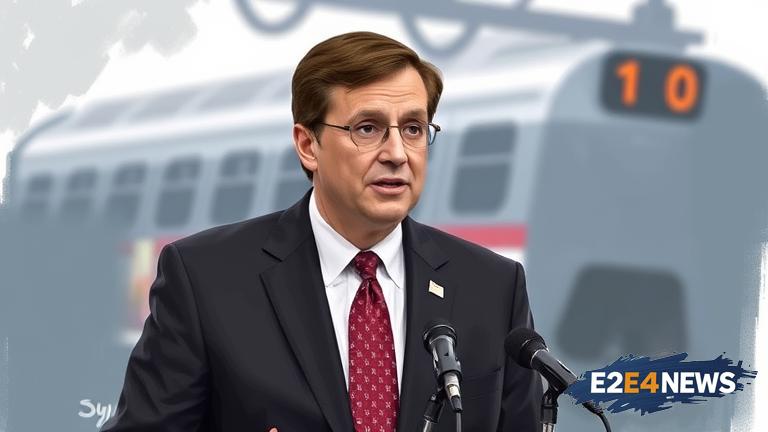Governor Josh Shapiro of Pennsylvania has expressed his willingness to utilize special transit funding to mitigate the impending cuts to the Southeastern Pennsylvania Transportation Authority (SEPTA). This move is part of a more comprehensive package aimed at addressing the transportation crisis in the state. The SEPTA cuts, which are slated to take effect in the coming months, would significantly impact the daily commutes of thousands of residents in the Philadelphia area. Shapiro’s administration has been working closely with SEPTA officials and other stakeholders to explore possible solutions to the funding shortfall. The special transit funding in question is a dedicated source of revenue that could be used to support SEPTA’s operations and help offset the proposed cuts. Shapiro’s openness to using this funding is seen as a positive step towards finding a solution to the crisis. However, the governor has also emphasized the need for a more sustainable and long-term fix to SEPTA’s funding issues. The transportation authority has been facing significant financial challenges in recent years, due in part to declining ridership and revenue shortfalls. The proposed cuts would affect several bus and train routes, as well as reduce the frequency of service on certain lines. This would not only inconvenience commuters but also have a negative impact on the local economy. Shapiro’s administration has been exploring various options to address the funding crisis, including increasing funding for SEPTA through the state budget. The governor has also called on the legislature to pass a comprehensive transportation funding package that would provide a stable source of revenue for SEPTA and other transportation agencies in the state. The package would include a combination of funding sources, such as increased gas taxes, tolls, and other revenue-generating measures. Shapiro has emphasized the importance of finding a solution to the SEPTA funding crisis, citing the critical role that public transportation plays in the state’s economy and quality of life. The governor has also noted that the funding crisis is not unique to SEPTA, and that other transportation agencies in the state are facing similar challenges. To address this issue, Shapiro’s administration has been working to develop a more comprehensive and sustainable transportation funding plan. This plan would not only provide a stable source of revenue for SEPTA but also support other transportation initiatives and projects throughout the state. The plan would also include measures to improve the efficiency and effectiveness of SEPTA’s operations, such as investing in new technology and infrastructure. Shapiro’s willingness to use special transit funding to combat SEPTA cuts is seen as a positive step towards finding a solution to the crisis. However, the governor has also emphasized the need for a more long-term and sustainable fix to SEPTA’s funding issues. The transportation authority has been working to reduce costs and increase revenue, but more needs to be done to address the underlying funding challenges. Shapiro’s administration is committed to finding a solution to the SEPTA funding crisis and is working closely with stakeholders to develop a comprehensive and sustainable transportation funding plan. The plan would not only support SEPTA but also other transportation agencies in the state, and would help to ensure that Pennsylvania has a safe, efficient, and reliable transportation system. In conclusion, Governor Shapiro’s willingness to use special transit funding to combat SEPTA cuts is a positive step towards finding a solution to the crisis. However, more needs to be done to address the underlying funding challenges facing SEPTA and other transportation agencies in the state. Shapiro’s administration is committed to finding a long-term and sustainable solution to the funding crisis, and is working closely with stakeholders to develop a comprehensive transportation funding plan.
